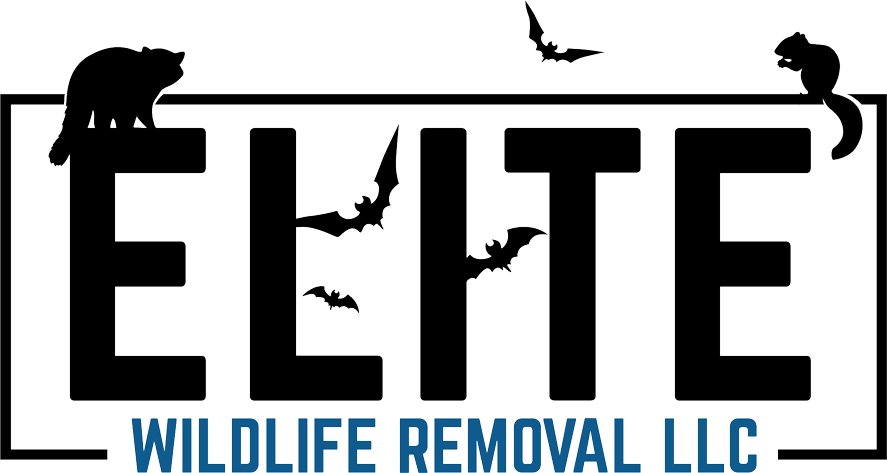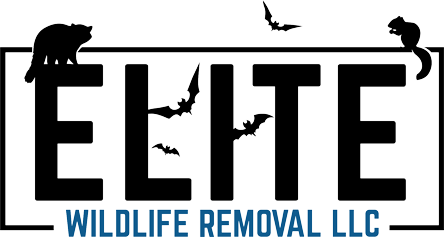Skunk Removal And Control
Skunk Removal And Control
Few wildlife encounters are as dreaded as crossing paths with a skunk on your property. While these animals may appear harmless, their ability to spray a pungent and lingering odor makes them an unwelcome guest near homes and businesses. Their presence often signals more than just the risk of an unpleasant smell—these animals dig under porches, burrow beneath sheds, and create den sites in areas that can lead to structural damage. When you choose to work with our company, you'll receive expert solutions to effectively remove these animals and implement prevention measures to keep them from returning.
The Trouble With Uninvited Guests
Skunks are nocturnal creatures, meaning they do most of their foraging and activity under the cover of darkness. They are highly adaptable and will take advantage of any accessible food source, including unsecured trash bins, pet food left outdoors, bird feeders, and even compost piles. Their keen sense of smell helps them locate meals with ease, and once they find a consistent source of food, they are likely to return night after night. Over time, their repeated visits can encourage them to establish dens nearby, digging burrows under decks, patios, or crawl spaces. These dens provide shelter not just for one individual but often for an entire family, which can escalate the problem rapidly and make removal more challenging.
Beyond their infamous spray, they pose additional risks to property owners. They are notorious for digging holes in yards and gardens in search of grubs and insects, leaving behind unsightly damage that can ruin landscaping efforts. Their burrowing behavior can weaken the ground beneath sheds, porches, and foundations, leading to costly structural issues if left unchecked. Additionally, they are known carriers of rabies, which makes them a significant health hazard to pets and humans alike. Their presence can also introduce secondary problems, such as attracting predators like foxes or coyotes to the area. Identifying the signs of an infestation early—such as small, conical holes in the yard, lingering odors, or tracks near a suspected den site—is critical in preventing larger issues down the road. The sooner they are addressed, the easier it is to remove them and implement effective prevention strategies.
Effective And Humane Removal Solutions
Removing these animals from a property requires care and expertise. Unlike other nuisance wildlife, attempting to handle them without professional assistance can result in an unfortunate encounter with their defensive spray, which can linger for weeks and is difficult to remove from surfaces, clothing, and even pets. Their spray is not only unpleasant but can also cause temporary blindness and respiratory distress if directly exposed. We use proven, humane trapping methods to ensure successful capture while minimizing stress to the animal. Our team is trained to identify den sites, assess entry points, and determine the best strategy for removal without disrupting your property or causing unnecessary harm. We carefully inspect the surroundings to locate burrows and entry points, ensuring that every individual is accounted for before sealing off potential nesting areas.
Once the animals are removed, it’s crucial to address the factors that attracted them in the first place. Proper sanitation, removing food sources, and sealing off potential den locations are key to preventing re-infestation. Leaving even a small food source available can invite new wildlife onto the property, making future problems more likely. Our team assists in every step of the process, providing guidance on securing trash bins with locking lids, installing protective barriers around decks and sheds, and eliminating areas that may serve as future shelter spots. Additionally, we offer exclusion services that make your property less appealing to wildlife, helping you maintain a skunk-free environment long after removal.
Preventing Issues Post-Removal
Eliminating one problem does not guarantee another won’t arise if the right preventative steps aren’t taken. Skunks are opportunistic creatures, and if one has found a way onto your property, others may follow. That’s why exclusion techniques are a necessary part of long-term control. Installing fencing around decks, sheds, and crawl spaces can make a significant difference in preventing new burrows from being formed.
Another essential prevention method is maintaining a well-kept yard. These animals thrive in areas with overgrown vegetation, woodpiles, and debris, as these environments provide excellent hiding spots. By keeping the landscape tidy and ensuring no food is left accessible, property owners can greatly reduce the chances of future infestations. Our team not only handles the immediate problem but also provide lasting solutions that keep wildlife at bay for good.
No homeowner or business wants to deal with the persistent odor, property damage, and health risks associated with a skunk infestation. We specialize in humane, effective removal services that address both the immediate issue and long-term prevention. If you’ve noticed signs of activity on your property, don’t wait until the problem escalates. Contact us today to schedule an inspection and learn how our professional wildlife control solutions can help restore peace of mind and protect your home or business from unwanted intruders.
Frequently Asked Questions About Skunks
Q1. What should I do if my pet gets sprayed by a skunk?
A1. If your pet gets sprayed, acting quickly is crucial to minimize the strong odor. First, keep your pet outside to prevent the smell from spreading indoors. Avoid using water immediately, as it can cause the oils in the spray to set deeper into the fur. Instead, mix a solution of hydrogen peroxide, baking soda, and dish soap to break down the chemicals responsible for the smell. Apply the mixture thoroughly, let it sit for several minutes, then rinse with lukewarm water. You may need to repeat this process to fully neutralize the odor. Be sure to check your pet’s eyes for signs of irritation—if they appear red or watery, rinse them with cool water and contact your veterinarian if symptoms persist.
Q2. Why do skunks dig up my yard, and how can I stop them?
A2. Skunks are opportunistic feeders, and they dig in search of grubs, worms, and insects hidden beneath the soil. This behavior often becomes more noticeable in the spring and fall when food is abundant. If your lawn is covered in small, cone-shaped holes, skunks are likely the culprit. To deter them, consider using grub control treatments on your lawn to reduce their food supply. Motion-activated lights or sprinklers can also be effective in scaring them away. If they have already established a den nearby, professional removal may be necessary to prevent recurring damage to your yard. Our team can assess the situation and implement exclusion techniques to keep them from returning.
Q3. Can a skunk infestation lead to other wildlife problems?
A3. Yes, having skunks on your property can attract other nuisance wildlife. Their burrows create inviting shelter for animals such as opossums, raccoons, and even snakes, all of which may take over abandoned dens once skunks leave. Additionally, their presence can lure in predators like foxes and coyotes, increasing potential risks to small pets. If a skunk has settled on your property, it’s important to address the issue quickly before it escalates. Beyond removal, sealing off potential entry points and eliminating attractants, such as pet food and unsecured trash, will help prevent future infestations. We strive to provide comprehensive wildlife control solutions that address not only skunks but any secondary problems they may bring to your property.
All Rights Reserved | Elite Wildlife Removal


